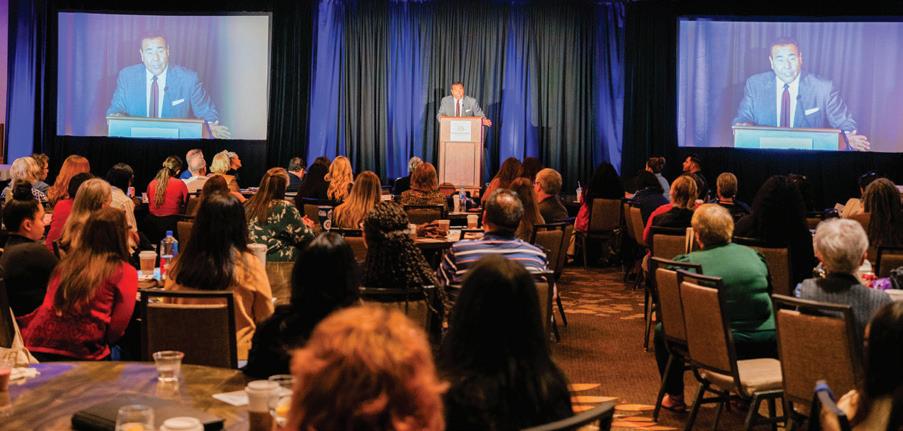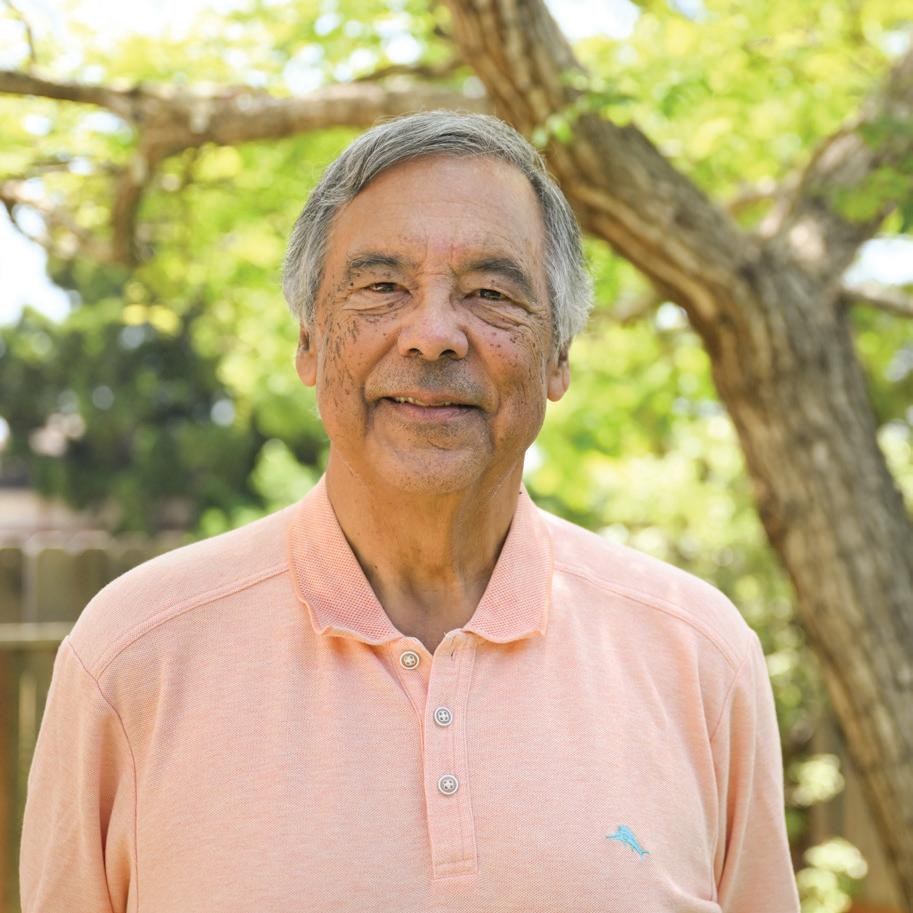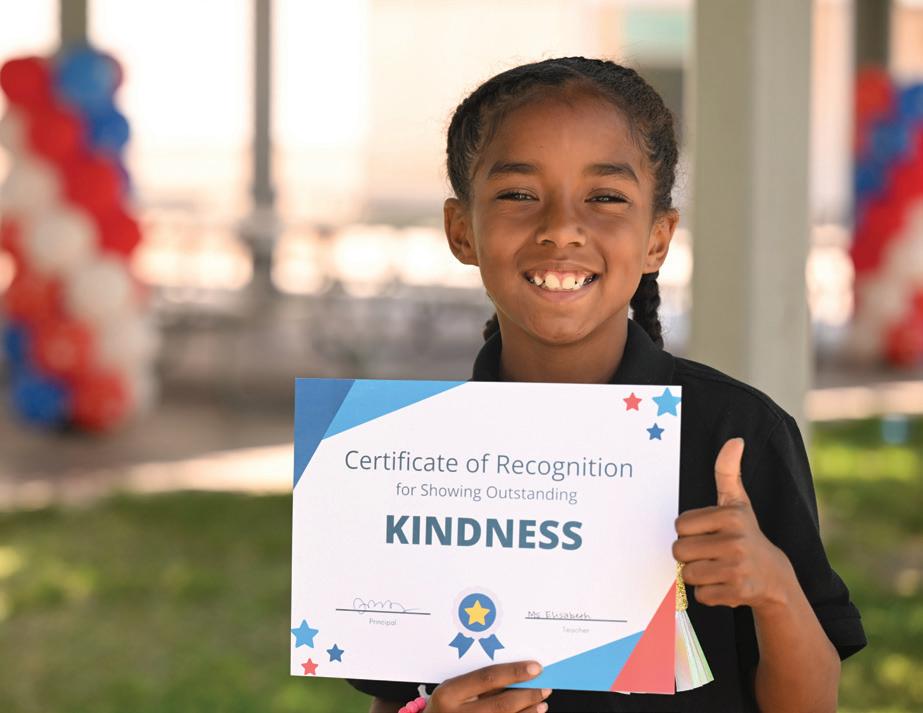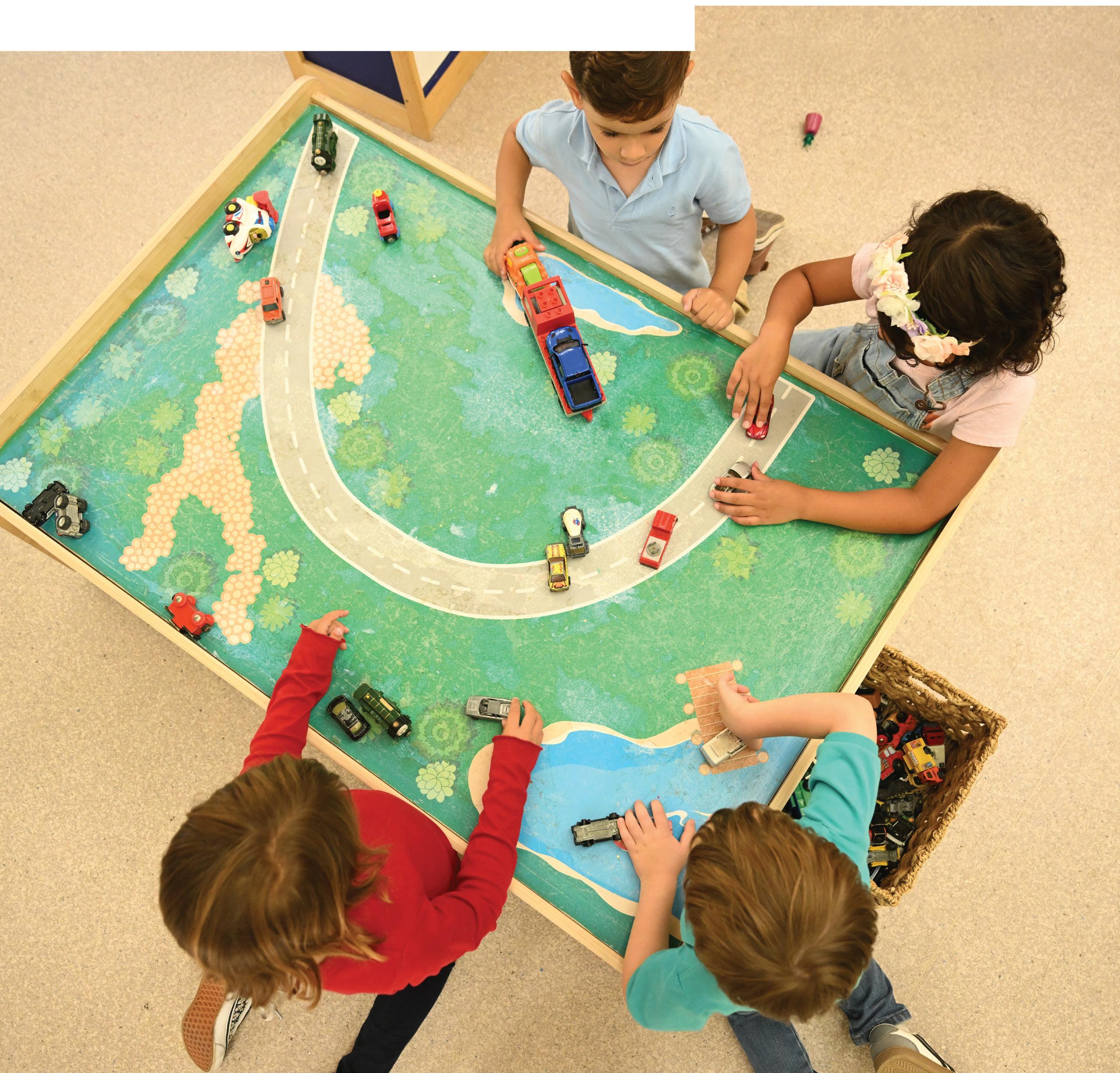Impact Report
FISCAL YEAR
2024-2025
Together, we’re creating brighter futures for children in foster care and juvenile justice across California.


Together, we’re creating brighter futures for children in foster care and juvenile justice across California.


Dear Friends,
It’s been another transformative year at California CASA Association.
Together in 2024, we impacted over 19,518 lives – our local programs served 10,844 children, supported 7,582 volunteers, employed 594 staff members, and were led by 498 board members. This does not include the countless families supported by Court Appointed Special Advocate (CASA) volunteers, and the ripple effect these connections have had on their communities.
Over the past year, we’ve continued to strengthen local programs so they can reach more children. Despite unpredictable state and federal funding to our local programs, we are a steady advocate at the state level for funding, support, and services for children in foster care and juvenile justice throughout California. Read on to learn more about how our support is empowering local programs to serve more children each day.
Here at California CASA, we are working toward a future in which every child in California’s foster care and juvenile justice systems has the transformative support of a CASA volunteer. It is our mission to ensure that children in these systems have both a voice and the services they need to thrive. And we could not do this without you – our supporters, our volunteers, and our friends.
Together, we are building a brighter future for children and their communities.
With our deepest gratitude,

Sharon M. Lawrence, Esq. Chief Executive Officer

Michelle Griffin Board Chair, Fiscal Year 2024-2025
Our 44 local CASA programs work tirelessly to support the children they serve. We lighten their operational burdens and expand their capacity by providing strategic advocacy, funding, training, and networking opportunities. Over the past year, our support empowered local CASA programs to grow stronger, speak louder, and serve more children.
IN CALENDAR YEAR 2024, WE PROVIDED:
$15,509,565 in grants 10,383 hours of technical assistance 3,734 volunteer leads for local programs 48 network calls and webinars with 3,391 total attendees 8,176 staff and volunteers trained by California CASA
SO THAT LOCAL PROGRAMS STATEWIDE COULD:
Serve 10,844 children in their communities Generate $44,144,809 total revenue
Recruit, train, and support 7,582 active CASA volunteers who served 389,426 total hours
This support from California CASA to the local network is valued at $18,760,201.

“ This funding has improved our program’s ability to serve children and families because our bilingual advocate supervisor is able to support more Spanish-speaking children, their families, and their assigned CASA volunteers. He has also increased recruitment by conducting outreach to more of our local Spanish-speaking community so that they gain awareness of CASA. This helps us better serve youth who would benefit from being assigned CASAs who fit their cultural and linguistic needs.”
– CASA of San Luis Obispo
In collaboration with Learning for Action, we release a statewide impact evaluation quantifying the effectiveness of CASA volunteers based on a variety of inputs, including focus groups with current CASAs and young people who were formerly in foster care.
California CASA hosts our first statewide conference in 20 years, bringing 350 staff members from across the state together in Costa Mesa for collaboration and shared insights.

“I enjoyed getting to meet and network with the other CASA programs and staff and getting to see people in person. I appreciated learning from other CASA programs across the state and hearing how California CASA is continuing to support the local chapters.” — Conference Attendee
Our team secures a grant from the Conrad N. Hilton Foundation to support and strengthen local programs.
“We’re proud to support California CASA as a statewide hub for CASA chapters. By serving as a crucial conduit to policymakers and providing a collective voice to communicate what’s happening on the ground, California CASA enables local chapters to focus on delivering the vital support that youth in foster care need.”
– Conrad N. Hilton Foundation
Our “Just by Being You” volunteer recruitment video wins bronze at the fourth annual Anthem Awards, the largest and most comprehensive social impact video award. This highlights our successful marketing campaign that launched in the spring and ran through the end of this fiscal year.
With our Board of Directors, we launch a local program board initiative called “Stronger Boards, Stronger Futures.” This includes trainings and roundtables for local CASA boards across California so they can more effectively collaborate with local staff, advancing our shared mission and serving more children.
Assemblymembers Mia Bonta, Patrick Ahrens, Stephanie Nguyen, and Rhodesia Ransom declare February 6, 2025, as CASA Appreciation Day in California. Our leadership also gathers to meet policymakers for the annual Day at the Capitol in Sacramento.
“CASA volunteers step in during some of the most uncertain moments in a child’s life.”
– Assemblymember Rhodesia Ransom
In partnership with the Los Angeles Times, we produce a podcast and video featuring Jessica Herrera, a current CASA volunteer who spent time in foster care as a child.
During this time, we also launch a Peer-to-Peer Recruitment Kit so that volunteers have the tools they need to successfully recruit interested friends and family.
California State Assembly passes Assembly Bill 741, introduced by Assemblymember Rhodesia Ransom and championed by our team, streamlining background checks for CASA volunteers and staff. This was later passed by the Senate and signed into California law by Governor Gavin Newsom in October 2025.
In collaboration with Joseph P. Ryan, PhD, our team led a published, groundbreaking study on the impact of CASA volunteers on children involved in the juvenile justice system. See sidebar for more information.
Our team launches new Juvenile Justice Resources and a Diversity, Equity, Inclusion, Belonging, and Justice Course Catalog, both of which support CASA staff, volunteers, and board members across the network.
“We recognize that the children we advocate for are often impacted by disparities and disproportionality — and that CASA volunteers are uniquely positioned to interrupt these patterns. This catalog is both a strategic investment and a personal invitation: to reflect, to learn, and to act.”
– Cynthia Featherson, DEI Manager at California CASA
Our key finding from this study is that CASA volunteers significantly improve outcomes for children and teens on probation. When paired with a CASA volunteer, young people in the juvenile justice system are:
• Less likely to violate probation or re-offend
• More likely to experience self-efficacy, especially in academics
Based on these findings, we are now expanding training and program support to local CASA programs across California.
“ Rae spent her teenage years drifting in and out of juvenile hall. She was surrounded by professionals such as probation officers, therapists, and case managers, but none of them felt real to her. She felt unseen and unworthy. Then, her CASA Nancy showed up. At first, Rae thought she was just another person paid to check boxes. But Nancy kept coming back. She visited Rae in juvenile hall, printed photos of Rae’s dad and dogs to hang on the walls, and called and met with her almost every day. Slowly, Rae realized Nancy was there because she wanted to be. She believed Rae’s life mattered. Nancy helped Rae enroll in college, navigate financial aid, and move into a dorm where her cat Garfield could come too. Today, Rae is in her second year of college. She wakes up every morning with hope and purpose. She dreams of becoming a social worker to help kids like her because once, someone showed up and never left ”
– Marin CASA
“ For years, we’ve been committed to serving youth in the juvenile justice system but lacked the infrastructure and dedicated staffing to fully launch a program at this level. With this funding, we’ve built the foundation, established strong partnerships with the courts and probation, created a new training manual, and recruited advocates equipped to support these youth. What was once a vision is now an operational program, making a real difference in the lives of young people who deserve meaningful, individualized support.”
– CASA of Santa Cruz
In 2024, our 44 local CASA programs served 10,844 children and teens in foster care across the state. That means 10,844 children had the consistent support of a caring adult trained in trauma-informed care and cultural competency. Someone who took them out for ice cream, showed up for their recital, and made sure their voice was heard in court.
Behind each child is a story of resilience and hope for a brighter future.
2024 Holiday Card from a Teen to Her CASA in Merced County

“ Merry Christmas! You being my CASA has been great. At this point of time you feel like a mom to me. Looking back at all the memories we created made me realize you were here when barely anyone cared. The hugs you give are welcoming and meaningful. The times you picked up your phone because I had hard times you sat down and listened. Having a wonderful CASA worker / loving mother like you is one in a million for a kid. I was going to give you a gift but you know me, I accidentally spent the money. Hopefully this letter is enough. Thank you for the best memories with us. Merry Christmas.”
Our volunteers are at the heart of our work, and we are proud to help local programs recruit, train, and support incredible volunteers like Frank, Carly, and Jalen. Here they share why they feel connected to this work, in their own words.
My wife and I had been involved in CASA for many years on the fundraising side. We learned a lot about what CASA does, and I watched my wife, Scottie, volunteer for 25 years. I decided to become a CASA volunteer to give back a little bit since I retired. And I feel that the benefit of having somebody in the court system who looks out solely for the children meant a lot to me. I’ve been very fortunate to do that.”


Carly
I first became a CASA because I, one day, want to be a foster parent for reunification. So, CASA is an amazing introduction to the dependency court system. The reason I want to be a foster parent is that I want to be the safe place, the safe in-between, and CASA is an amazing way to do that now. I love getting to build a relationship with my kiddo. The way that I see it, anything that I can do to make their experience in the system smoother, I want to be able to do that.”
What do I enjoy most about being a CASA volunteer? I think seeing the growth of the kids you get to work with. A lot of times, when you first get matched with these kids, they are super shy and timid – which is expected, they have been through a lot of things and you’re forming a new relationship. But over time, you get to see them open up and tell you things and confide in you. It’s really an awesome feeling because you get to see that they trust you with what they are going through.”

From CASA of Butte, Glenn, Shasta, and Tehama Counties
Recently, one of our CASAs spent the day with a youth at Turtle Bay. What began as a short visit turned into a full afternoon of discovery and joy.

After a quick look at the indoor exhibits, the youth was drawn outside to play—splashing in the water trough, riding the zip line, and even sitting through the entire 30-minute animal show, fully engaged.
As time progressed, they headed to the picnic tables where the youth clearly told his CASA, ‘I am hungry.’ That simple sentence was a powerful moment of communication and self-expression. He enjoyed every bite of his lunch and then eagerly returned for more exploring, laughing, and learning through play.
He mentioned McDonald’s a few times, and his CASA promised they’d go next week—a small moment of connection and consistency that builds trust. This visit was more than a fun outing. It reflected the child’s continued growth, his increasing confidence, and his readiness to learn. Each experience like this builds the foundation for a brighter future—and reminds us why having a dedicated CASA makes all the difference.”
Our budget reflects the third and final installment of $20 million in state funding, including our distribution of more than $15.5 million in grants and centralized services to local CASA programs. We are grateful to our funders and partners as we continue to advocate at the state level for increased funding to support children in foster care and juvenile justice.
STATEMENT OF ACTIVITIES | 2024 THROUGH JUNE 30, 2025
$20,112,689 Even when funding is uncertain, your support is ensuring every child has someone in their corner.

